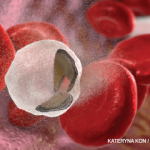The immune system is an ocean, wide, vast and unfathomably deep, over which we rheumatologists traverse. Beyond the ripples, waves and eddies on the surface, we can only imagine what lies under the surface. With new information from basic laboratory studies and the incorporation of immunomodulators into clinical practice, we have some new insight into the underlying immunology of rheumatic conditions. Sometimes, these affirm what rheumatologists have predicted, but unforeseen surprises have also been revealed. One such surprise is that the autoimmune disorders we see are intimately linked to immune deficiencies.1
This puts the rheumatologist on the frontline in identifying immune deficiencies and starting the initial workup. Unfortunately, because this is such a novel and apparently paradoxical paradigm, many misconceptions exist. As a clinical immunologist, as well as a rheumatologist, I commonly hear the following five misconceptions from my rheumatology colleagues.
Misconception #1
Primary immunodeficiencies are characterized by recurrent infections.
Without a doubt, the most common reason for evaluating immunodeficiencies is the presence of a history of recurrent infections. But it’s not necessarily the defining feature of a primary immunodeficiency disorder (PIDD). Consider other red flags, such as unusual, out-of-place infections, severe manifestations of infectious disease, poor wound healing and prolonged courses of antibiotics to treat diseases. Even one infection by an atypical organism should raise suspicion of an underlying immunodeficiency, even if the dysfunction is subtle.
On the other hand, a history of recurrent or severe infections doesn’t mean there must be an immunodeficiency. Some pathogens tend to colonize the skin, gut and other areas, and so may predispose to recurrent infection regardless of immune status. Anatomical issues may also predispose to recurrent infections independent of immune system.
Lastly, autoimmune diseases and neoplasms may be the first and most pronounced manifestations of immune deficiency, with or without infections. Therefore, maintain a high index of suspicion in virtually all patients with an autoimmune rheumatologic condition.
Misconception #2
Immunodeficiencies are genetic diseases that appear in childhood.
When many people think of immunodeficiencies, they think of childhood diseases. Perhaps images of David Vetter, whose struggle with severe combined immunodeficiency led to widespread media coverage of “the boy in a bubble,” come to mind. But this is a misleading and outdated construct. Adult-onset immunodeficiencies are not rare and may represent a majority of immune deficiency cases, although the numbers are hard to come by due to methodological issues.2


